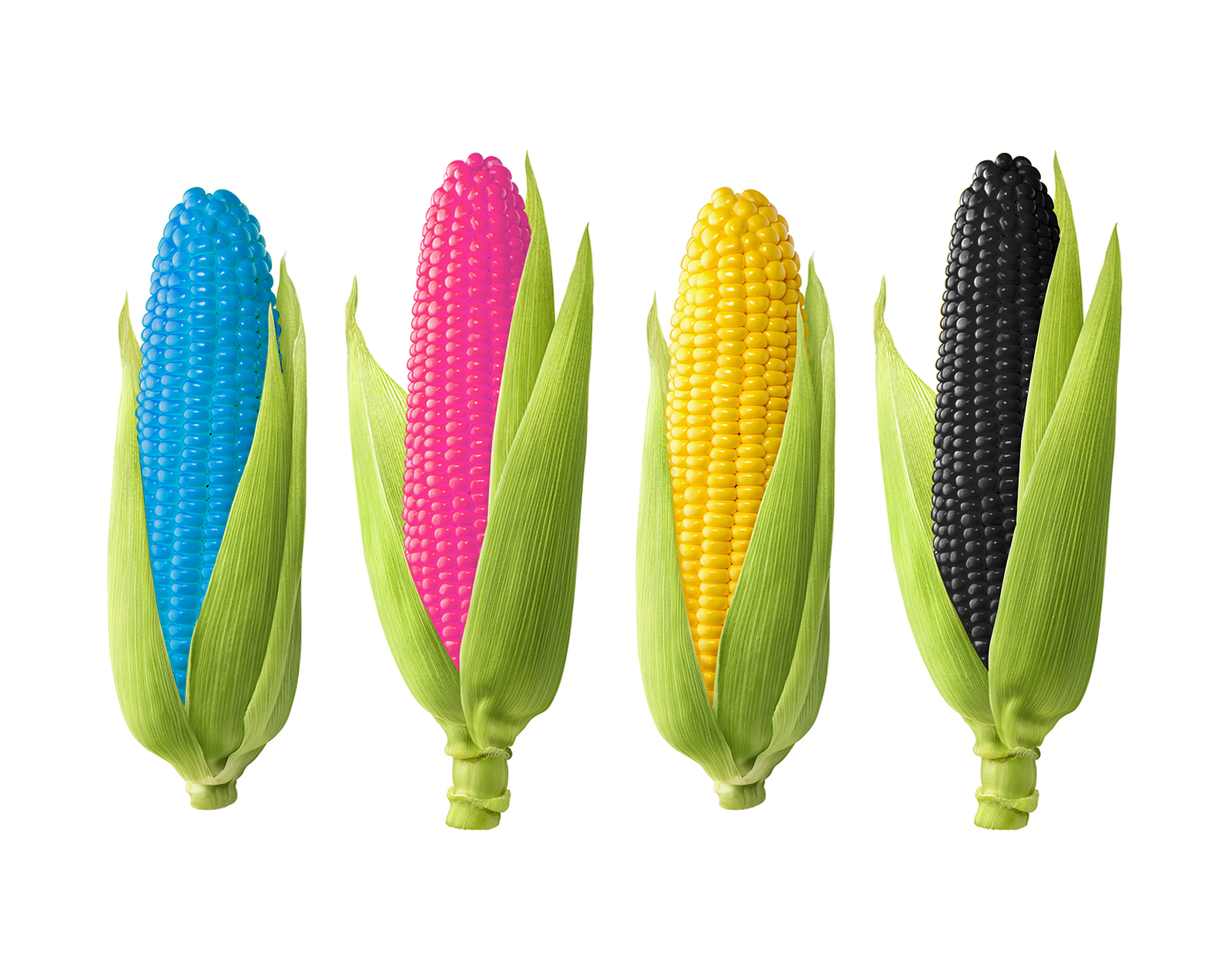Impact on the environment begins with what kind of ink you decide to put on paper. Alternative solutions with vegetable inks can drastically reduce your company’s environmental footprint. Marketers can make more eco-oriented choices when determining inks.
In the 1960s, the popularity of petroleum-based inks rapidly grew due to their fast drying time, speeding up production time and are most commonly used today. During the drying process, petrol and alcohol releases up to 30% Volatile Organic Compounds (VOCs) into the atmosphere. VOCs contain methane – a greenhouse gas that is incredibly effective at trapping heat – and since the Industrial Revolution, methane concentrations have more than doubled…you can guess where this is headed.
Vegetable based inks can be made from corn, walnut, coconut, linseed, canola and soybean. They can produce brighter and more vibrant colours, too. And although they may take a longer time to dry, vegetable-inks are water based and significantly reduce the amount of VOCs released into the atmosphere. When paper products are recycled, vegetable inks are easier to remove from the paper and are from a renewable source.
Vegetable-based inks also create a healthier working environment for printers without having the need to use toxic solvents to clean the press post-production.
Take home notes when considering inks:
VOCs (volatile organic compounds) – Emitted as the ink dries.
Heavy metals – These are contained in certain pigments (particularly metallic colours) and can result in environmental and worker health hazards.
Non-renewable resources – The oil content in non-vegetable oil inks is petroleum-based.
Require help with moving towards more eco-friendly printing options? Contact us today!




